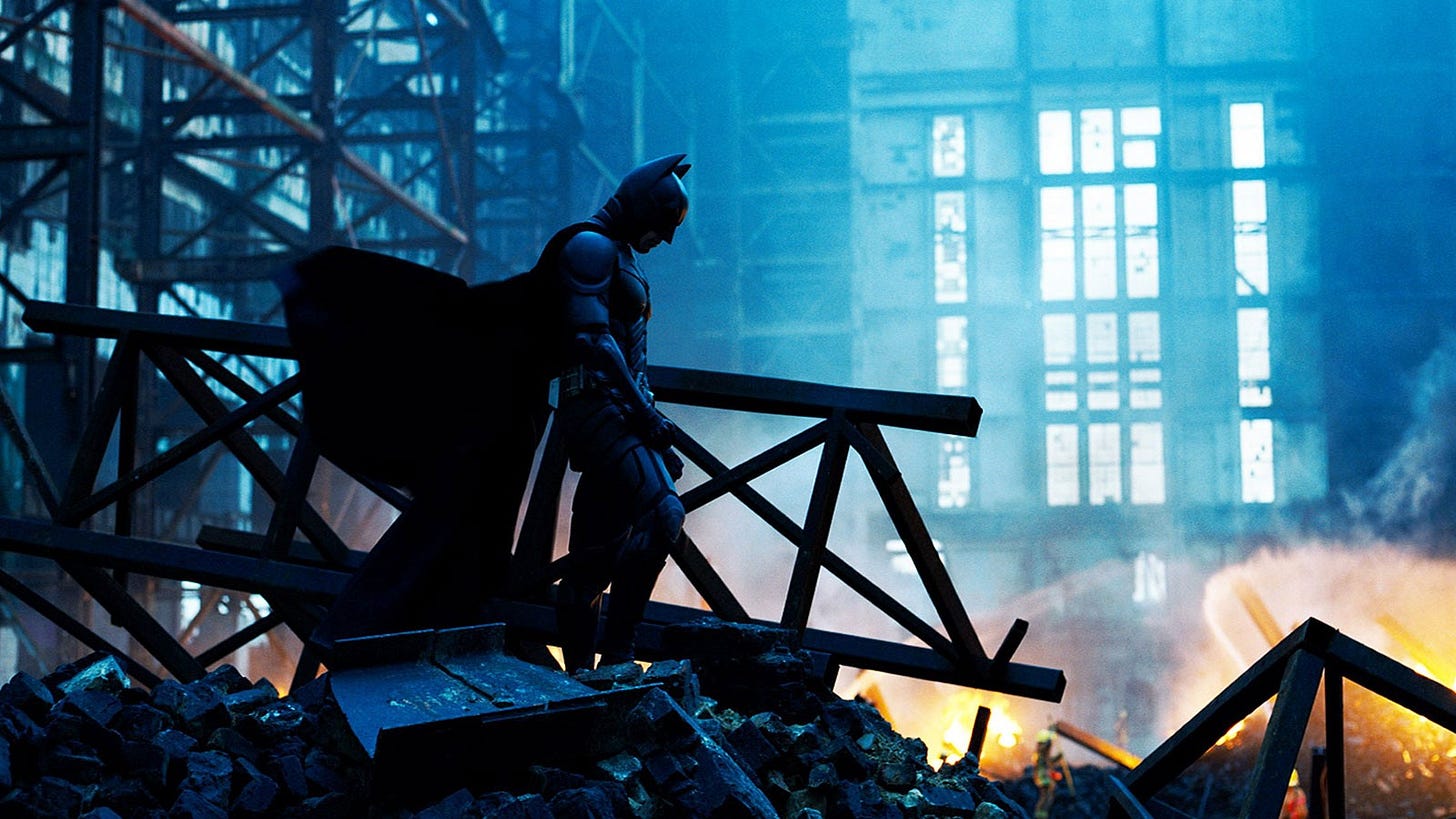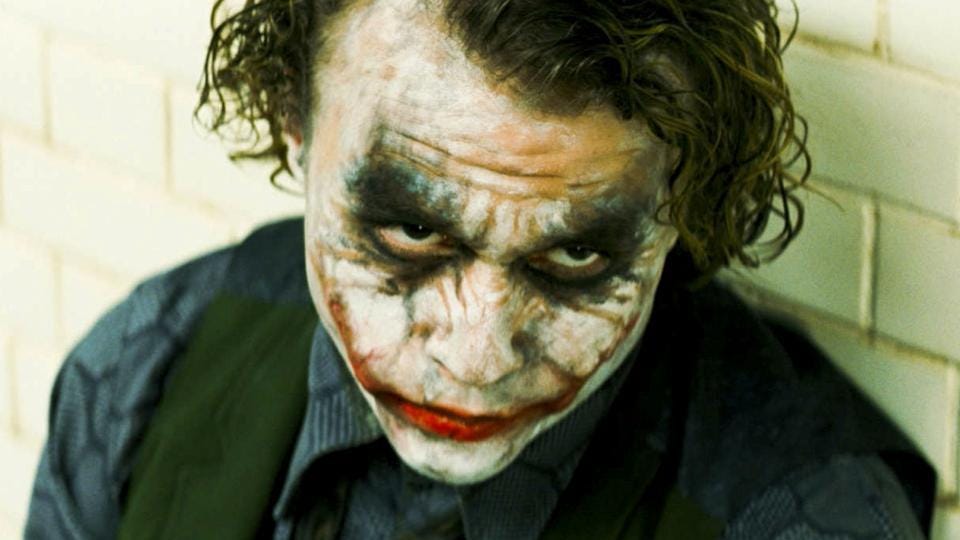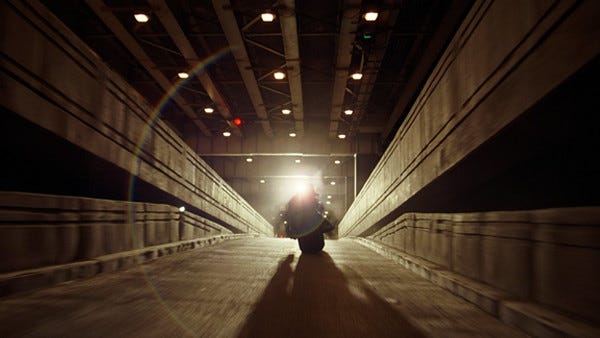The Dark Knight: Sacrifice
Exploring the thematic elements of Christopher Nolan’s Dark Knight Trilogy
“You either die a hero, or you live long enough to see yourself become the villain.”
- Batman to Commissioner Gordon
There is only one supervillain whose fame and recognition equal that of their superhero counterpart. If you look at the most famous Batman stories ever written or put to film, this character is almost always front and center. Even for a hero with the most iconic rogues gallery ever, there is one villain that stands alone: The Joker.
The second film in The Dark Knight Trilogy picks up shortly after the events of Batman Begins. Batman, Jim Gordon, and the new District Attorney Harvey Dent are cleaning up the damage that Ra’s al Ghul and Scarecrow have caused the city. They are succeeding in their war on organized crime, leaving the mob bosses cowering in fear. Just as Batman, the GCPD, and the DA are about to achieve victory over Gotham’s criminal underworld, the crime bosses seek assistance from a young, ambitious criminal known as the Joker to help them get rid of Batman. After dismissing him as a common criminal at first, Batman quickly learns that the Joker’s motives are far more devious than anything he had imagined. After establishing dominance over the rest of Gotham’s most powerful crime lords, the Joker begins a game of cat and mouse with Batman that will determine the fate of Gotham.
I talked in my Batman Begins analysis that Ra’s al Ghul is the Satan figure to Batman’s savior role. That relationship is even more clear in the relationship between Batman and the Joker. The Joker is more similar to Satan than perhaps any other supervillain in comic books. One of the Greek translations of Satan’s name is “accuser”. Throughout the film, the Joker makes accusations against everyone including Batman, Harvey, Gordon, law enforcement, media, and the government. He uses their shortcomings and human weakness to justify his actions. When Gordon asks him what he’s done with Dent, he blames Gordon for Dent’s abduction because he left him with corrupt detectives in his unit. When Harvey blames Joker for Rachel’s death, Joker claims that he couldn’t have killed Rachel because he was locked in the MCU when the explosives went off. He believes that the civilians on the ferry will blow up the ferry with the convicts because according to him, “When the chips are down, these civilized people, they’ll eat each other.” He is a true nihilist, believing that there is no meaning to actions, rules, and order. Like Satan, the Joker is a liar and a trickster. When telling the story of how he got his facial scars, he tells a different story every time. He lies to Batman when telling him the locations of Harvey and Rachel, leading Batman to save Harvey when Joker knew he would go after Rachel. He tries to get the SWAT team to kill his hostages by dressing them up as clowns, and he when robbing the bank at the start of the film, he tells all of his accomplices to kill each other off. The most similar trait the Joker shares with Satan is his nature to rebel against the good, ordered nature of God and find delight in chaos and evil. He describes his chaotic nature to Harvey when he says, “I’m a dog chasing cars, I wouldn’t know what to do with one if I caught it. You know, I just DO things.” I think Alfred perfectly describes the Joker in what is perhaps the most impactful line in the film, “Some men aren’t looking for anything logical like money. They can’t be bought, bullied, reasoned, or negotiated with. Some men just want to watch the world burn.”
The true “hero” of The Dark Knight (or at least most of it) is Harvey Dent. Harvey is type of man that Bruce was hoping would eventually come along and take over his role as the protector of Gotham. When we first meet him in the film, he is a stoic, confident, stouthearted man who is not afraid to go to war with the mob and is seemingly incorruptible. Bruce and the Joker both seem to realize that Harvey is key to saving the city of Gotham, so they begin a tug of war over Harvey’s soul. This is a battle that the Joker unfortunately wins after he kills Rachel and warps Harvey’s perception of justice. Joker convinces Harvey that order is cruel because it is a futile attempt by those in power to control their world and consequently decide the fates of others, and that the only response to order is chance because in his mind it is indiscriminate and fair.
To me, the main theme of The Dark Knight seems to be sacrifice. The Joker’s end goal seems to be the corruption and downfall of Harvey Dent. If he can get the most honorable, incorruptible man in Gotham to abandon his resolve and morality, then he has won. This closely resembles Jesus’s temptation in the desert. (Of course Satan in that instance was unsuccessful because the man he was trying to tempt also happened to be God.) After Harvey dies in his confrontation with Batman, it appears that the Joker’s victory is complete. This leads to one of the most allegorical moments in the film. Batman (an innocent sacrifice), takes responsibility for Harvey’s murders (humanity’s sin) to save the city from being overrun by violence and decay resulting from the release of the criminals that Harvey locked up (the fallen world and original sin), giving Gotham a hope for a better future (salvation). Sound familiar? Bruce recognizes that Batman is the sacrificial lamb that must be offered up to secure the salvation of Gotham’s soul.
Next week, I will be closing out my series on Christopher Nolan’s Dark Knight Trilogy with it’s final installment: The Dark Knight Rises.
God Bless You All
Michael







